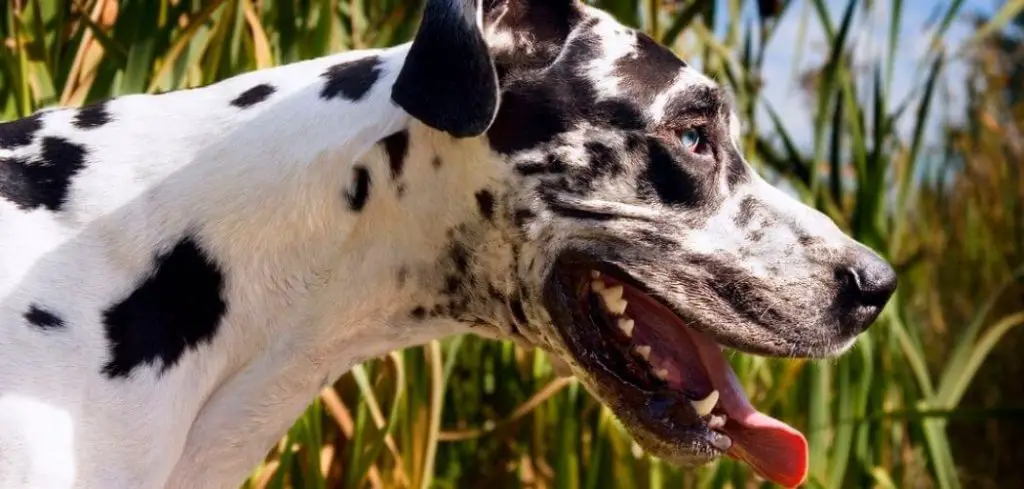A dog that suddenly begins licking excessively can leave owners puzzled and concerned.
While occasional licking is normal, a sudden and persistent increase in licking often points to an underlying health or behavioral issue that needs attention.
We outline the common causes of sudden excessive licking in dogs, what you can do at home, and when to seek veterinary help.
Dog Licking Excessively Suddenly — Why It Happens
A dog that suddenly starts licking excessively may be experiencing anything from allergies to gastrointestinal discomfort, pain, stress, or even neurological issues. Some dogs lick excessively due to itchy skin caused by environmental triggers or food intolerances. Others may do so to soothe an upset stomach, cope with pain, or as a response to anxiety.
Sudden changes in behavior often indicate something new has developed, so it’s important not to dismiss this symptom.

Sudden Excessive Licking in Dogs: Common Causes
Allergies
Dogs with environmental or food allergies may suddenly lick excessively to relieve itching. This licking can focus on their paws, legs, or body.
Allergens such as pollen, mold, or certain proteins in food can trigger itchy skin or irritation, which leads to compulsive licking.
If left untreated, constant licking may cause redness, hair loss, or secondary infections.
Read more: Senior Dog Licking Floor Excessively Suddenly (Important signs to watch for)
Gastrointestinal Upset
A dog that feels nauseous or has stomach discomfort may start licking excessively, including licking objects, floors, or even their lips.
This is often a coping mechanism for nausea. In some cases, dogs will lick excessively before vomiting or when they have acid reflux.
If this licking is paired with loss of appetite, drooling, or vomiting, it could be related to digestive issues that need veterinary attention.
Pain or Injury
Sudden excessive licking can also signal that a dog is in pain. Dogs instinctively lick areas of discomfort as a way to soothe themselves.
This may be due to joint pain, arthritis, wounds, or internal discomfort. For example, an older dog with arthritis may suddenly lick one leg more often.
Identifying whether the licking is localized or general can help determine if pain is the underlying cause.
Anxiety and Stress
Behavioral causes are another possibility. Dogs under stress or experiencing anxiety may begin licking excessively as a self-soothing behavior.
This often appears suddenly after a change in environment, loud noises, or separation anxiety. Over time, this behavior can become compulsive, with the dog licking floors, walls, or themselves without stopping.
Left unchecked, it can lead to skin irritation and worsening anxiety.
Neurological Disorders
Though less common, neurological conditions can also cause sudden excessive licking. Disorders that affect brain function may result in repetitive, compulsive behaviors like constant licking.
Seizure activity or cognitive dysfunction in senior dogs can also trigger this type of sudden behavioral change.
Any unexplained, persistent licking paired with other neurological signs warrants a veterinary exam.
Skin Infections or Parasites
Bacterial or fungal skin infections, as well as flea infestations, can cause sudden itching that leads to nonstop licking.
Parasites in particular may cause sudden localized licking as the dog reacts to irritation.
Over time, this can cause hot spots and worsen the infection, making veterinary care crucial to relieve discomfort and stop the cycle.
What to Do If Your Dog Is Suddenly Licking Excessively
If a dog suddenly begins licking excessively, start by observing when and where it happens. Notice whether the licking is focused on one area of the body or is more generalized. Look for other signs such as hair loss, vomiting, limping, or changes in appetite.
At home, you can try rinsing your dog’s paws after outdoor walks to reduce allergens, ensuring they have a comfortable and calm environment, and checking for obvious irritants like fleas or small wounds. Providing distraction with enrichment toys or interactive play can help redirect anxiety-driven licking.
It’s also helpful to monitor diet and consider whether a recent food change may have triggered the behavior. If gastrointestinal upset is suspected, offering bland food and keeping water available may ease symptoms temporarily while you arrange a veterinary check.
When to Call or Visit Your Vet
If your dog’s excessive licking starts suddenly and continues without improvement, veterinary attention is recommended. Persistent licking that causes hair loss, redness, or open sores should always be evaluated.
Seek immediate veterinary care if licking is accompanied by vomiting, drooling, lethargy, limping, swelling, or seizures. These symptoms suggest an underlying medical condition that needs professional diagnosis and treatment.
Even if no other symptoms are present, a sudden change in behavior such as nonstop licking often signals discomfort or illness that should not be ignored.
Read more: Dog Licking Excessively (Causes and solutions)
Key Takeaway
A dog licking excessively suddenly is more than just a quirky habit—it often signals discomfort, illness, or stress.
While mild cases may be linked to allergies or anxiety, sudden onset should never be ignored. Observing patterns, checking for secondary signs, and seeking veterinary advice ensures your dog gets the right care quickly.
With prompt attention, most causes of excessive licking can be managed or treated, helping your dog feel more comfortable and preventing long-term complications.
